“What I want is respect for referees”
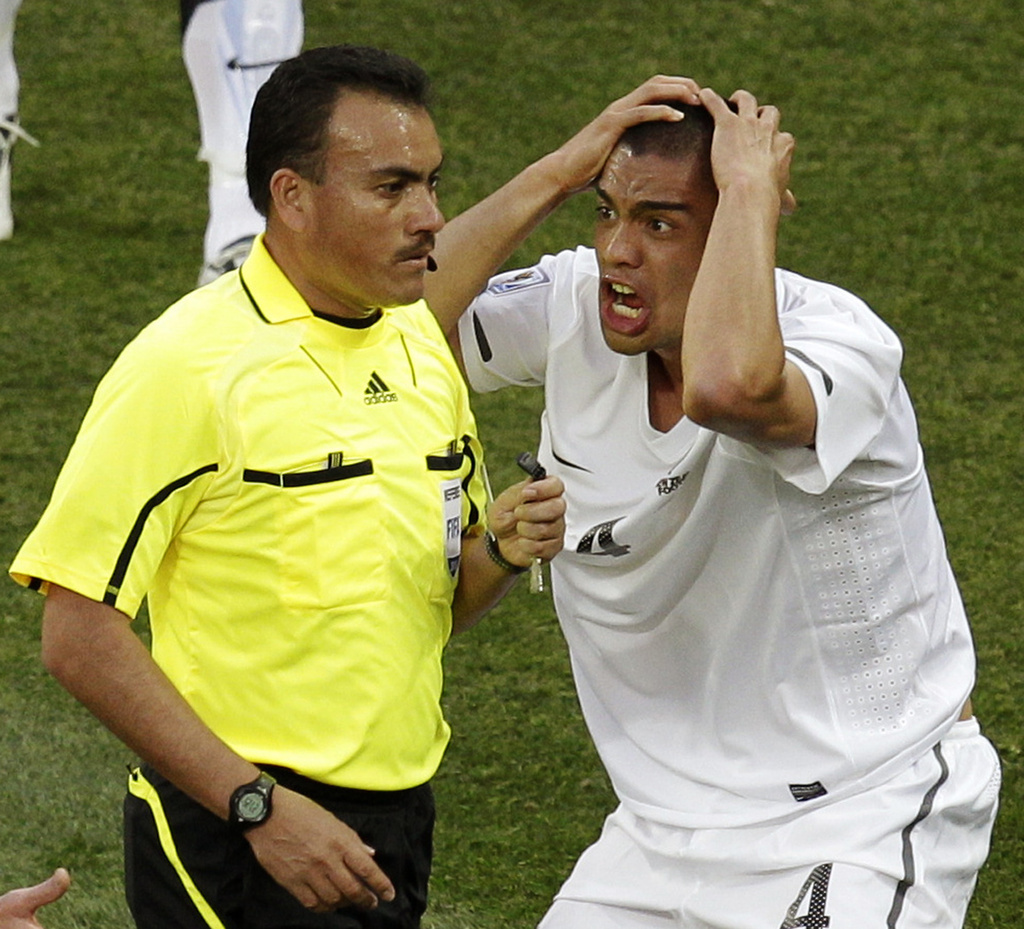
Swiss referee Massimo Busacca has been labelled “the worst referee so far” at the 2010 football World Cup by South Africa’s coach.
Instead of praising the first tournament to be held in Africa, Fifa, world football’s Zurich-based governing body, has been busier defending its referees against missed handballs, disallowed goals, Oscar-worthy acting and dodgy penalties.
Feel sorry too for Robbie Findley from the United States who not only got belted in the face by a ball but received a yellow card for his troubles.
Nevertheless, Fifa’s head of refereeing is “very, very satisfied” with the performance of World Cup match officials, despite widespread criticism of some decisions.
José María García-Aranda accepted that some calls were “not fully correct”, but that mistakes were inevitable.
“Some of them are not good decisions on the field of play and this, for human beings, is natural,” he told a news conference. “We’re trying to improve those decisions that we consider are not good enough and for that reason we are training every day.”
García-Aranda said World Cup referees should not have to explain their most controversial decisions to players and media – a stance backed by some of the 30 elite officials working at the tournament in South Africa.
“We’re not ready for that,” said Busacca, who is recognised as a clear communicator and candidate to officiate the final. “[Referees] will complain too much.”
“Artificially stupid”
While other referees said they wouldn’t mind explaining themselves and can even see the merit of it, don’t expect it to happen anytime soon. The same goes for other measures that could bring a little more transparency to questionable calls.
Video replays aren’t an option so long as Switzerland’s Sepp Blatter is Fifa president, and he’s all but certain to be re-elected to a fourth four-year term next year.
“We’ve [seen] excellent decisions on the field of play,” said García-Aranda. “Later, maybe with 32 cameras, thousands of people assessing this kind of situation, we realise these decisions were not fully correct.”
The Süddeutsche Zeitung recently said referees “were being kept artificially stupid”, by Fifa’s refusal to use available technology.
Camel
García-Aranda added that Fifa would not discuss individual decisions by its referees, who are supplied by each of the six continental football bodies and are each paid $50,000 (SFr55,000) for the tournament.
These questionable decisions include the incident in Monday’s game between Switzerland and Chile that resulted in the Saudi Arabian referee being called a camel on the front page of a Swiss tabloid the following morning.
Swiss midfielder Valon Behrami was sent off in the 31st minute with a straight red card for violent conduct, having raised his arm into the face of Arturo Vidal.
“The red card was not even a yellow card,” Swiss coach Ottmar Hitzfeld blustered after the 1-0 loss, accusing Chile’s players of putting on “quite a performance”.
For the sake of balance, however, it should be pointed out that Swiss defender Steve von Bergen was brushed in the chest by a Chilean and collapsed clutching his face.
Psychologist
Busacca, an international referee since 1999 who officiated last year’s Champions League final, was called “the worst referee so far” by South Africa coach Carlos Alberto Parreira.
Busacca sent off South African goalkeeper Itumeleng Khune for tripping a Uruguayan, and awarded a penalty.
Parreira added that Busacca “doesn’t deserve to be here” and the referee was “giving yellow cards that weren’t yellow cards”. South Africa ended up losing 3-0.
For his part, Busacca said he tries to be a psychologist, helping players by protecting them from their own intensity.
“Our duty is to prevent, not react,” he explained. “Go to him and say, ‘Hey, I know you’re going to do something’. My job is to try to finish the game 11 against 11. The more I have this contact, the more it will be a benefit for the games,” he said.
He also denied thinking about the final. “That’s all so far away. And I’m not the only ref. There are 24 of us and what I want is respect for these people.”
Hero
Jean-Martin Büttner, writing in Zurich’s Tages-Anzeiger newspaper, came to the defence of the men in the middle.
“Referees are football’s real heroes – because they act so unheroically and because they have nothing to gain and everything to lose.”
Refereeing, he wrote on Wednesday, is a job “in which a good performance never gets mentioned, but every mistake is thrown at them for days and repeatedly brought up years later”.
During Euro 2004, Swiss referee Urs Meier disallowed an English goal in the 89th minute against Portugal. England went on to lose on penalties. Meier’s personal details were published by British tabloid newspapers and he received more than 16,000 abusive emails and death threats.
“It’s a job performed in front of tens of thousands of people in the stadium and millions at home – the former always know better and the latter always see better, having analysed slow-motion replays from all angles,” Büttner said.
In addition, yellow and red cards prevent aggression on the pitch from turning into full-scale violence. “The referee reins in the violence – and at the same time is consigned to it.”
And this, he concluded, was why Blatter refuses to use video replays: as long as referees continue to make mistakes, that lets the losers hate someone else other than themselves.
Thomas Stephens, swissinfo.ch
Stephane Lannoy was criticised for failing to spot a handball before Brazil’s second goal in their 3-1 win over Ivory Coast, and sending off Kaka by showing a second yellow card when opponent Kader Keita appeared to run into the Brazilian playmaker.
Koman Couilbaly drew worldwide attention by disallowing a goal that would have given the United States a late lead against Slovenia, and infuriated American players by not explaining his judgement. He earlier showed a yellow card when the ball struck Robbie Findley in the face.
Khalil Al Ghamdi handed a red card to Swiss midfielder Valon Behrami for elbowing Chile’s Arturo Vidal, who was behind him. Vidal put his hands to his face and fell to the ground. The Chilean goal also appeared just offside.
Carlos Batres awarded Italy a penalty against New Zealand after De Rossi softly went to ground having had his shirt pulled.
Massimo Busacca didn’t endear himself to the host nation when he sent off South Africa’s keeper for tripping up a Uruguayan. He awarded a penalty too.

In compliance with the JTI standards
More: SWI swissinfo.ch certified by the Journalism Trust Initiative

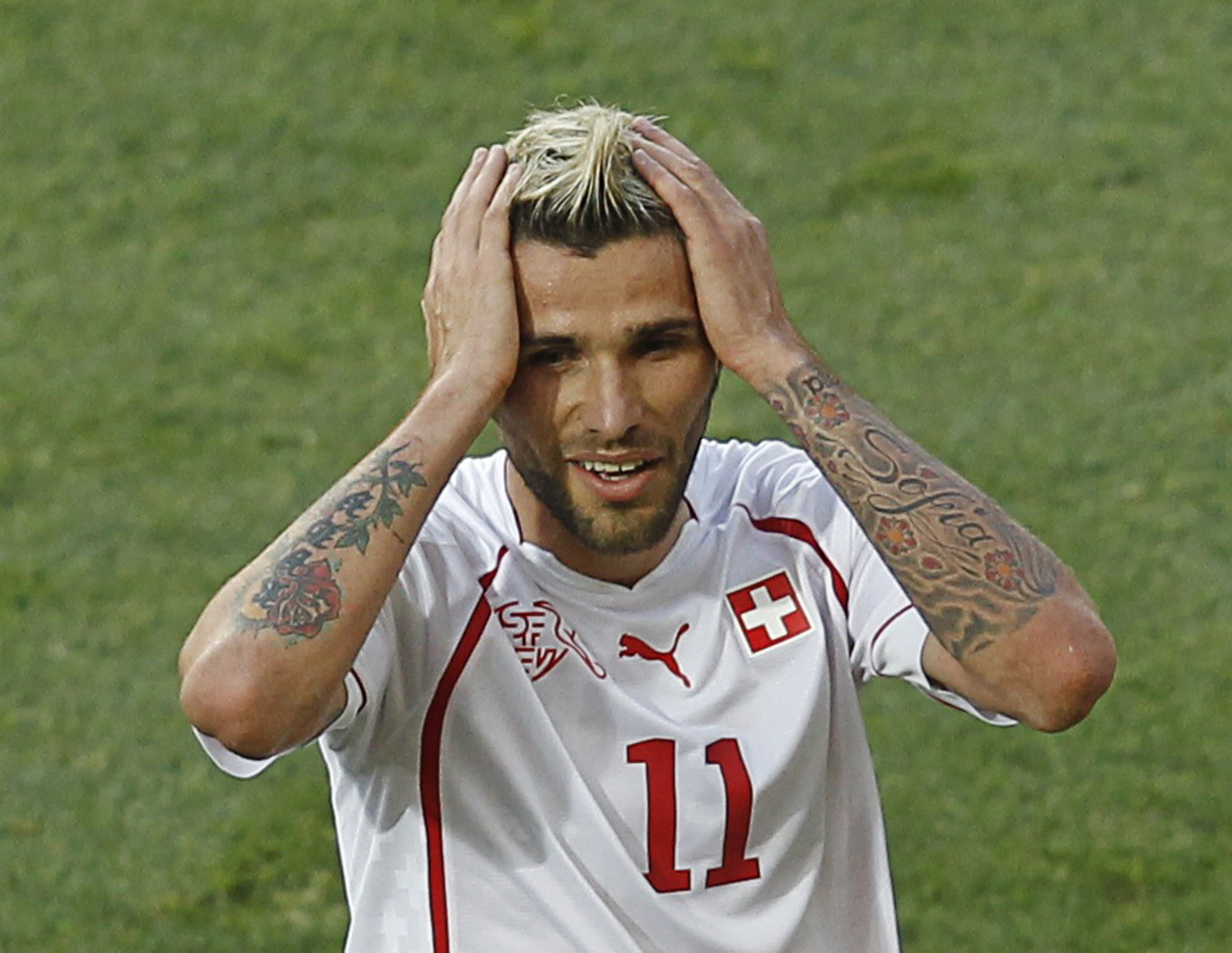
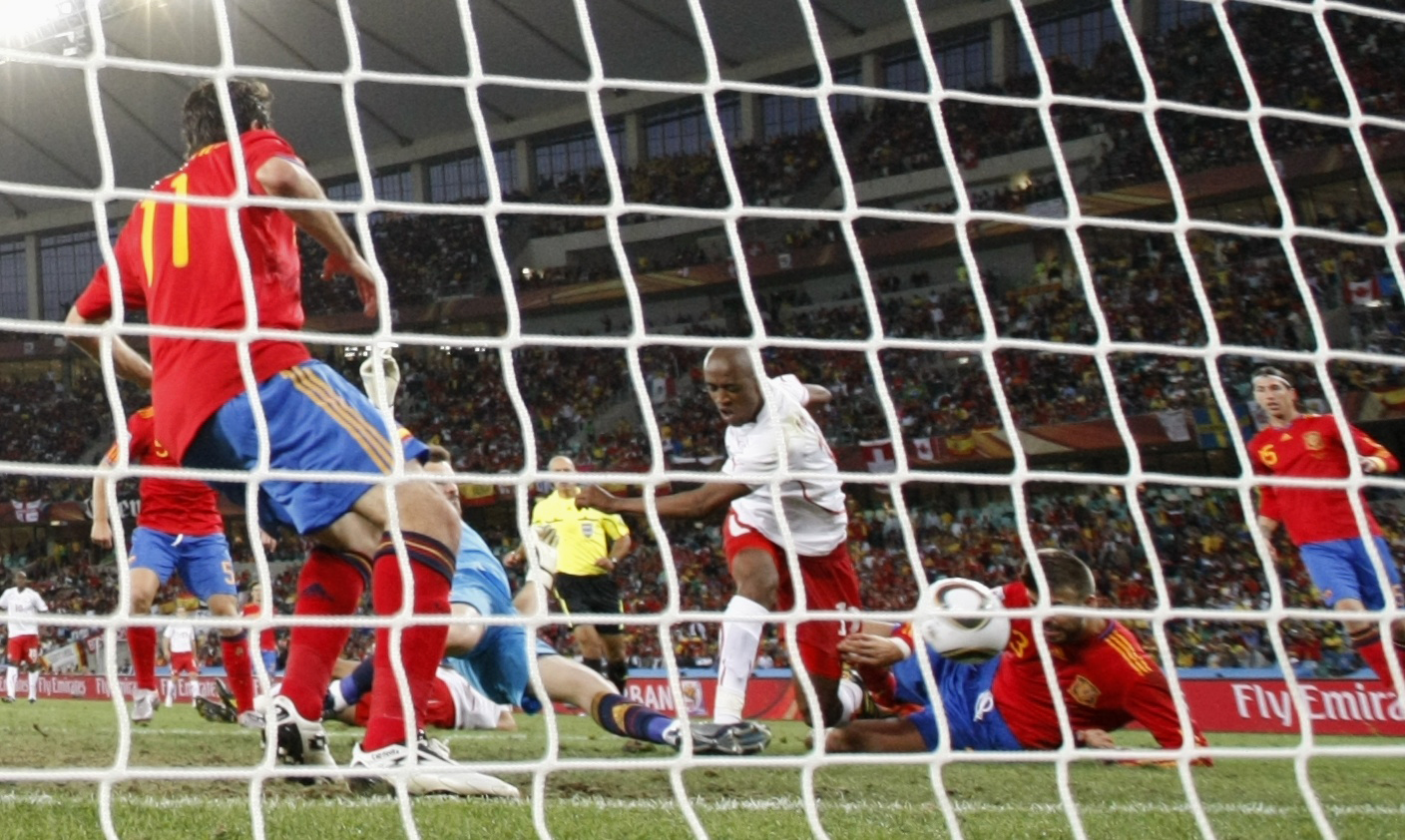
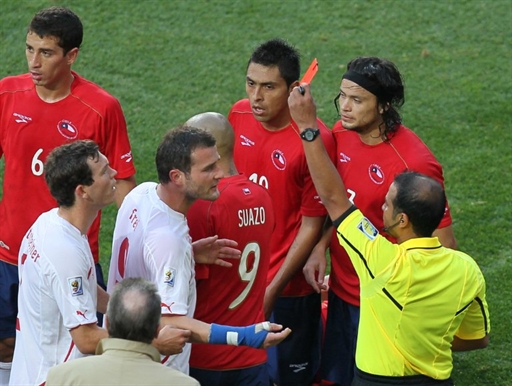
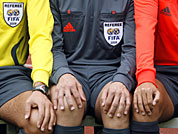
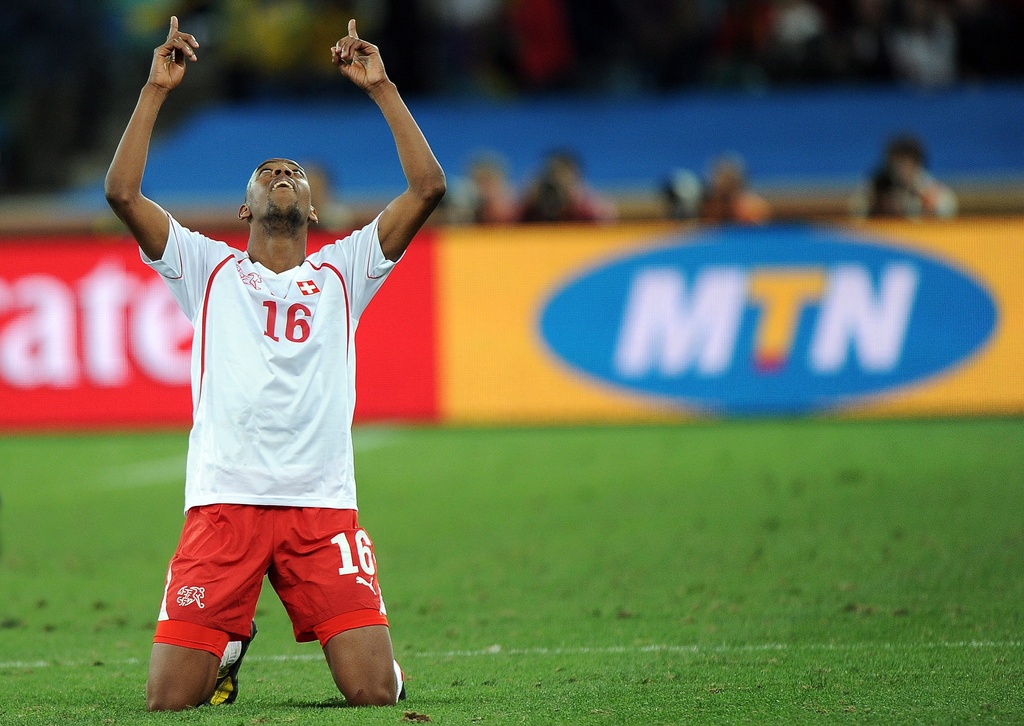
You can find an overview of ongoing debates with our journalists here. Please join us!
If you want to start a conversation about a topic raised in this article or want to report factual errors, email us at english@swissinfo.ch.